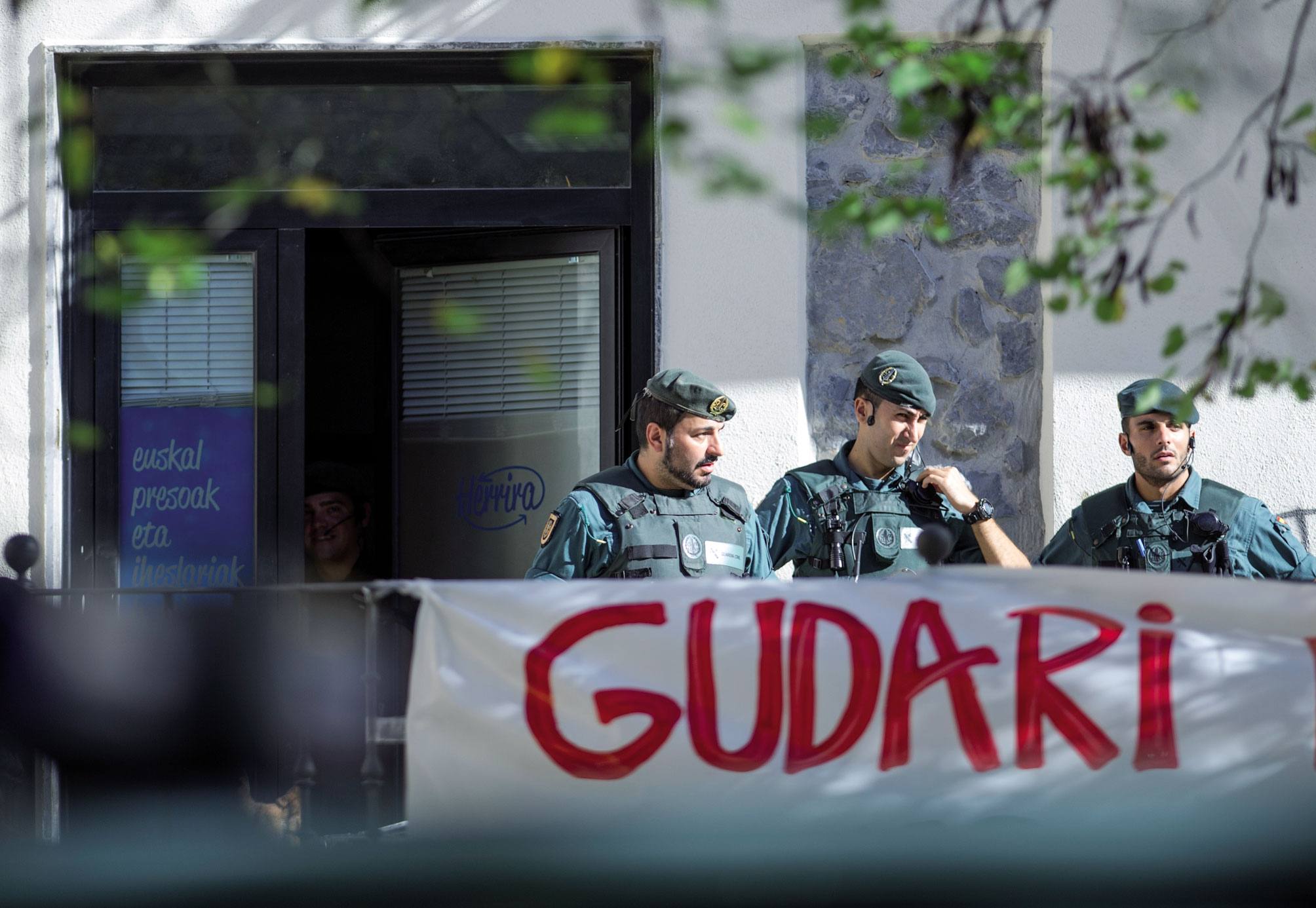
- The operation against Herrira has brought many to the memory images of a time when it had already passed. However, two years after the cessation of ETA’s armed activity, it is impossible to think of a step backwards in that direction; rather, it appears to be a movement of the Spanish Government to satisfy its internal opinion.

It is not a good sign that the civil guards will reoccupy the seats of the towns and capitals of Euskal Herria, register the seats and arrest a dozen and a half people. The raid on Herrira has had many auxiliary elements of police operations five, ten or fifteen years ago, which have taken place in France. However, the situation is completely different and, at this time, the Spanish State is increasingly incapable of committing these havoc, as thousands of people have said these days.
The force of the movement for the fundamental rights of prisoners has returned to the surface and it has become apparent that it is a generic demand that goes beyond certain political sectors. Above all, however, the raid on Herrira has been seen as a violation of the rights of the citizens, and its response has moved in these parameters. Action has not been taken against ideas, but against the right to defend them, and that, among other factors, has activated people.
On 30 September, shortly after the civil guards entered the headquarters of the Herrira movement, many social and trade union agents joined in denouncing the operation. It has drawn attention to the attitude of some acronyms and politicians, such as the hard post that Jesús Egiguren wrote in his blog – in which he said that the raid was “a political and judicial barity” – or the critical attitude of the unions at the state level.
The PNV has acted with two hands in this case, has placed the ball on the right in the roof of the left abertzale, has agreed a declaration of denunciation with EH Bildu. There have been many who have criticised this balance. The PNV has explained that this is a "disturbing setback", but looking back on one side and the other, with the latest ETA statement.
However, two years after the cessation of ETA’s armed activity, it cannot be thought that there is an involution in this sense, nor that the Abertzale left will change its strategy (see Xabier Letona’s analysis on page 50).
Grass to the media cave
The Basque society does not want to go back, it does not want to go back to the times of Garzón, where the surrounding environment was talked about. In the trials against Egunkaria and Udalbiltza these theses were overtaken, the solutions of then completely dismantled the story created by the supposed police experts.
It seems, however, that the State apparatus has been tempted to go down that road again, this time in the tentacle. National Audience Judge Eloy Velasco quotes in his car that Herrira is the platform for the control of ETA prisoners, a fantastic story from the classic crime of belonging to illegal organizations. A good juice to impregnate a little literature the speech of the Spanish Minister of the Interior.
This could be the operation that was carried out in the face of the possible favourable judgment of Strasbourg to suspend the Parot doctrine, so that the polyneous cannibalism that Josu Uribetxeberria received would not be repeated in the event that Inés del Río was freed, which was the subject of serious internal attacks by critics. But it's too risky to talk about unresolved sentences. On the other hand, there may be more than one reason behind the raid. One thing is clear, the government of the pp for the moment already has enough media simas to feed the right.
Another open cause in the National High Court
Anyone who knows the people – of course the police too – knows that it is an open and transparent movement and that it has defended certain demands in defence of the rights of political prisoners. Eloy Velasco has released four of the 18 detainees on bail, charged with murder offences. And nothing has happened here.
But yes, it has happened. During their detention they have caused discomfort among family members and friends; once released, they have placed the conditions for these people to be able to move – they have to appear twice before the police, they cannot leave the Spanish State… – and the political limitations – they cannot take part in actions in favour of the rights of the prisoners – have paralysed the activity of the Herrira movement for two years and have closed their homes…
Another issue that has been left open in the National Hearing is not a secret that the State uses as an instrument to influence the political situation of these cases. The defendants of the Herriko Tabernas and Segi will soon be tried, some of whom have suffered for almost 12 years in the limbo of Spanish justice. How long are those in Herrira going to spend?